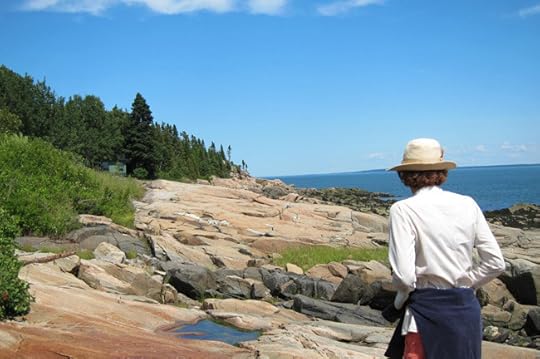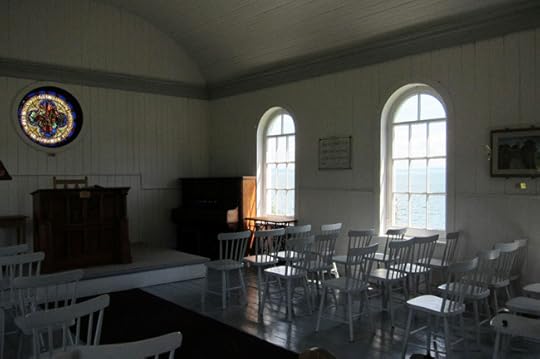Charlevoix 2
The rugosa roses were in full bloom, even in the sandy soils near the river beaches. On Saturday our friend took us to Port-au-Persil, literally "Parsley Port," so named by Samuel Champlain because he thought he saw Scottish parsley growing there. Oddly enough, eventually Port-au-Persil was settled by Scottish families. Now, the little settlement is a mixture of French year-round dwellers and Anglo "summer people."
We had a picnic on the beach, where our friend used to come as a child with her grandmother and great-aunts. There were dry salami, Quebec cheeses, smoked mackerel, French bread, a bit of paté, and hard-boiled eggs, which we cracked and ate dipped in salt poured into a crevice in the rocks. "My grandmother liked to come here and have what she called a 'tea picnic,' our friend told us. "We'd make a fire in the rocks, and boil the kettle right there, and have tea with little sandwiches and often hard-boiled eggs." She looked out at the water and smiled. "I've eaten a lot of hard-boiled eggs on this beach!"
After lunch we explored the tide pools, being careful not to slip on the wet mats of seaweed. The pools were teeming with all sizes of a small, green, shrimp-like crustacean, and many many snails.
Then we went clamberng over the rocks, many of which had amazing, almost perfectly straight grey stripes in the pink granite.
This is Labrador tea, growing lushly at the edge of the rocks.
And this is the interior of the tiny seaside chapel shown in the second photo. Services were held here once a month in the summer until recently, when the house nearby changed hands; the present owners allow the chapel to remain open but don't permit public worship there, which is a shame - no one seems to know why. Though probably there were memories of tragedies held between those white walls, the chapel had a lovely, peaceful feeling inside, looking out at the water.












